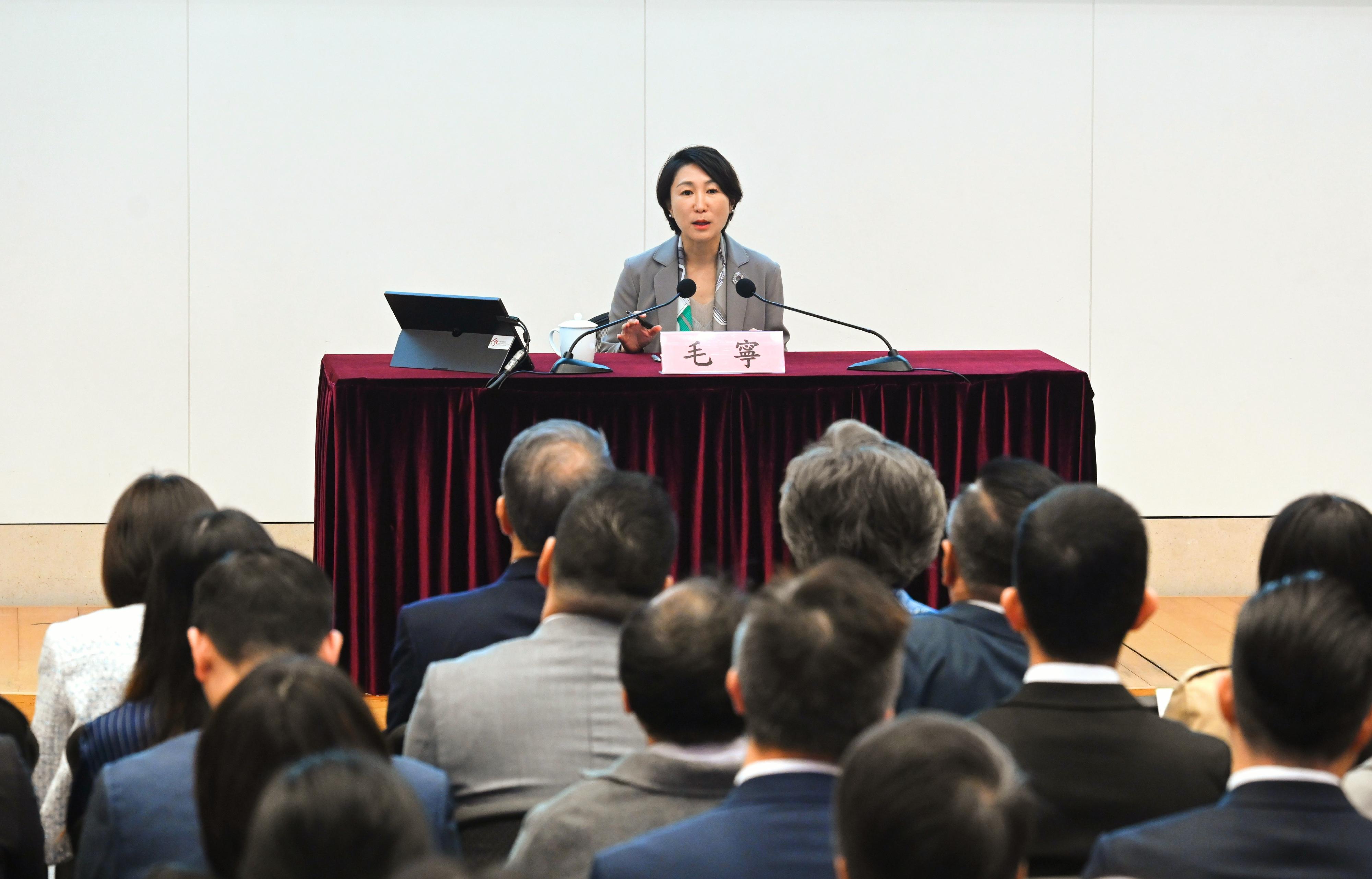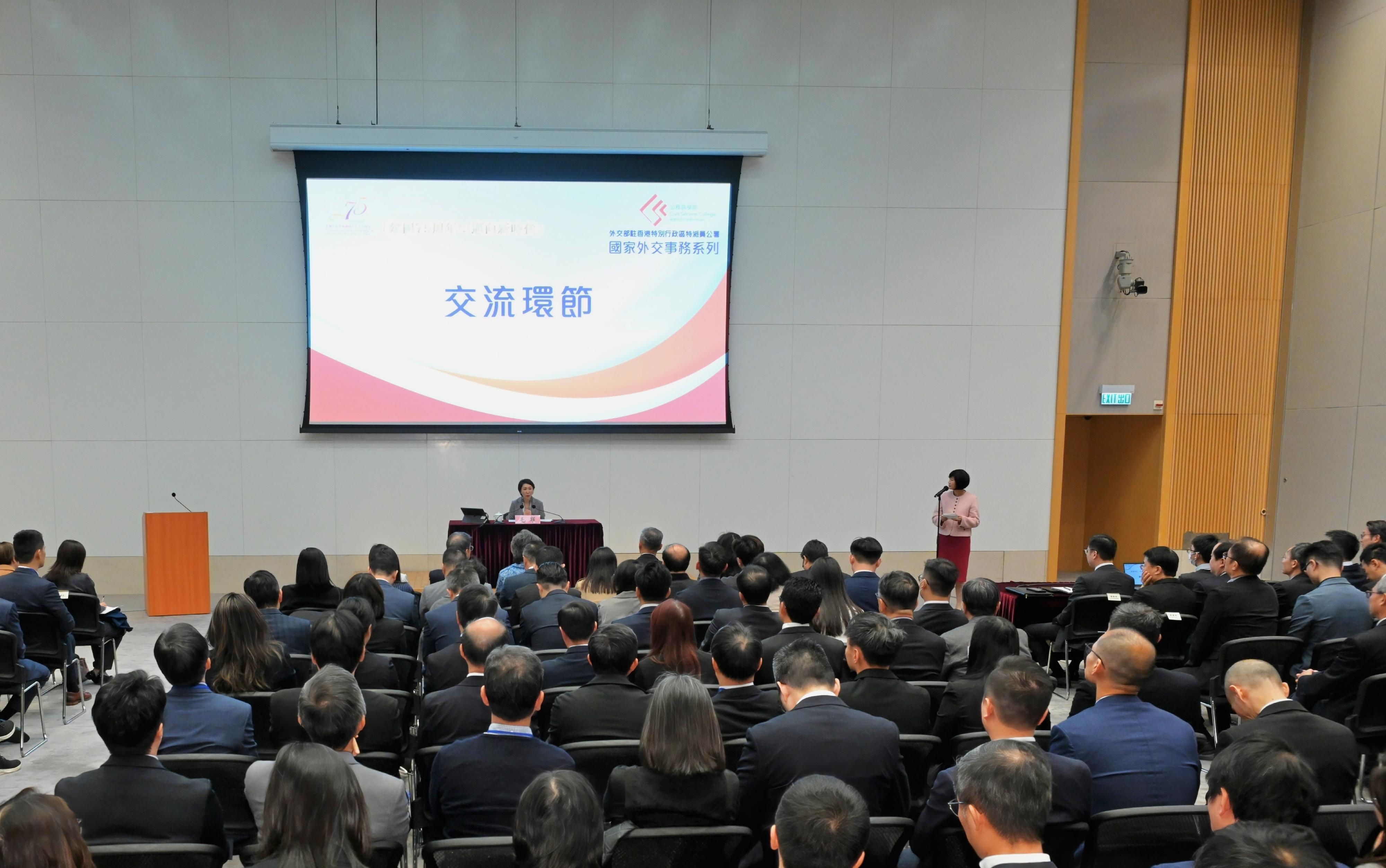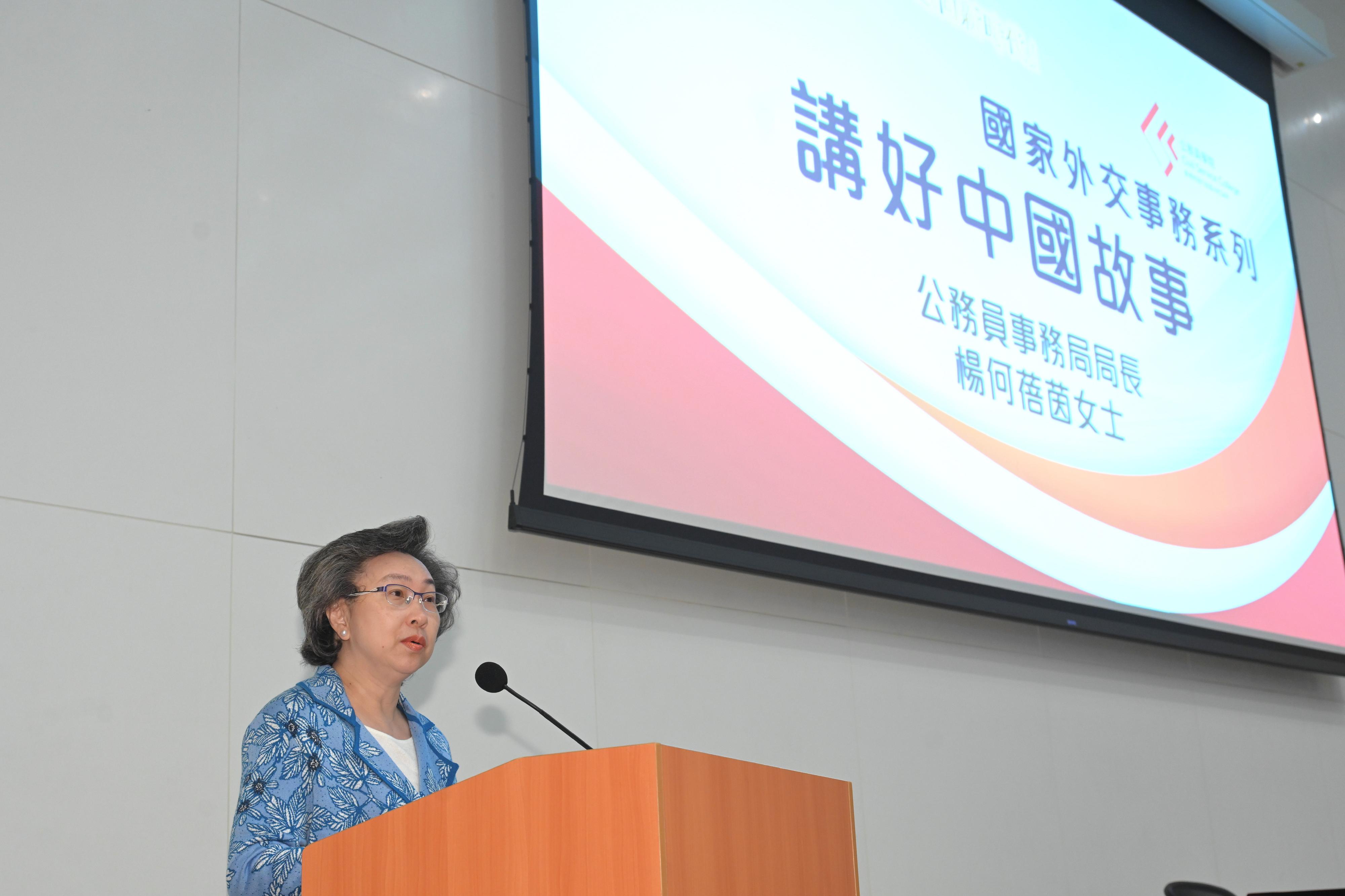LCQ3: Supporting development of Cantonese opera sector
Following is a question by the Hon Kenneth Fok and a reply by the Secretary for Culture, Sports and Tourism, Miss Rosanna Law, in the Legislative Council today (December 18):
Question:
It has been reported that Sunbeam Theatre in North Point, an important performance venue for Cantonese opera, will close down in March next year, and by that time, the sector will face problems such as finding new performance and rehearsal venues, as well as how to rehouse and provide training for Cantonese opera practitioners, which will bring about a significant impact on the stable development of the Cantonese opera sector. In this connection, will the Government inform this Council:
(1) given that after the closure of Sunbeam Theatre, there will be no performance venue for Cantonese opera of comparable scale under the Leisure and Cultural Services Department in the district, whether the Government has plans to collaborate with the business sector to jointly construct a permanent performance venue for the development of Cantonese opera; if so, of the details; if not, the reasons for that;
(2) whether the Government will consider providing support to Cantonese opera practitioners, including further according priority to Cantonese opera troupes in arranging venues for their performance, so as to sustain the living of Cantonese opera practitioners; if so, of the details; if not, the reasons for that; and
(3) as it is learnt that in the light of the impending closure of Sunbeam Theatre, business operators in the neighbourhood do not renew their tenancies out of worries over the loss of patronage from opera-goers, whether the Government has plans to expeditiously identify a new venue in the district for performance by Cantonese opera troupes which originally perform at Sunbeam Theatre, so as to preserve the long-established "Cantonese opera economy" in the district?
Reply:
President,
Cantonese opera is one of the important forms of Hong Kong's traditional arts and culture. It is also the first world-class intangible cultural heritage (ICH) item in Hong Kong. The Government attaches great importance to the development of Cantonese opera and has all along been providing active support to the transmission, study, promotion and continuous development of Cantonese opera through various ways, including (1) developing performance venues for Cantonese opera; (2) nurturing Cantonese opera professionals, promoting creative works and preserving traditions; (3) promoting Cantonese opera education, audience building and community participation; and (4) preserving the essence of Cantonese opera and showcasing the treasures of our cultural heritage.
To help develop Cantonese opera as a unique local culture and art form more effectively, the Government set up the Cantonese Opera Advisory Committee in 2004 to advise the Government on matters relating to the development of Cantonese opera in Hong Kong. In 2005, the Government also established the Cantonese Opera Development Fund (CODF) to support projects and activities that facilitate the preservation, promotion and development of Cantonese opera. Since its establishment, the CODF has granted about $200 million to support over 1 200 Cantonese opera projects, providing assistance to the Cantonese opera sector in various aspects, including performances of traditional plays and new creation plays, cultural exchanges, arts education and community promotion, children/youth training and performances, professional training, research, preservation and publication projects.
In the Blueprint for Arts and Culture and Creative Industries Development (the Blueprint) promulgated on November 26 this year, we have formulated four strategic directions, one of which being "promote profound traditional Chinese culture and develop cultural contents with Hong Kong character". Under this direction, the Culture, Sports and Tourism Bureau (CSTB) proposed to promote the cultural characteristics of Lingnan legacy and to foster the safeguarding and transmission of ICH. One of the concrete measures is to support high-quality development of Cantonese opera and collaborate with other cities in the Greater Bay Area to nurture a contemporary Cantonese opera culture which also inherits traditional characteristics.
My consolidated reply to the questions raised by the Hon Kenneth Fok is as follows:
The Sunbeam Theatre was opened in the 1970s. Apart from film screenings, the theatre stages Cantonese opera and other types of programmes such as theatre performances. Over the past few decades, the Sunbeam Theatre has provided much entertainment to people of Hong Kong and has gradually developed into an important venue for Cantonese opera performances. We understand that the Cantonese opera sector as well as members of the public are not only saddened by the impending closure of the Sunbeam Theatre early next year but also concerned about the availability of performance venues for Cantonese opera. In fact, discussions about whether the Sunbeam Theatre would continue to operate started as early as 2005. While operating the theatre or not was a commercial consideration, the Government back then was well aware of the Cantonese opera sector's concern over the shortage of suitable venues, particularly when the Sunbeam Theatre no longer exists. Hence, the Government pressed ahead with various works projects over the past decade or so. Funds were allocated to construct a number of public venues of various scales specifically for Cantonese opera and other xiqu performances. These venues, which include the Yau Ma Tei Theatre (commissioned in 2012), the Auditorium and rehearsal facilities of the Ko Shan Theatre New Wing (commissioned in 2014) and the Grand Theatre and Tea House Theatre of the Xiqu Centre at the West Kowloon Cultural District (WKCD) (commissioned in 2019), have provided additional 2 000 seats as compared with that over a decade ago, thereby easing the problem of inadequate performance venues. In addition to increasing the number of quality performance venues for Cantonese opera, these venues make more facilities available for nurturing Cantonese opera talents, rehearsing and training, building audiences and promoting education.
Meanwhile, the Government has introduced a priority venue hiring policy for Cantonese opera performances. The Leisure and Cultural Services Department (LCSD) also implements special booking arrangements for local professional Cantonese opera troupes at five of its major performance venues, reserving a total of 70 days of time slots each year for Cantonese opera performances. Cantonese opera troupes may also hire other performance venues managed by the LCSD for performances.
Through the Venue Partnership Scheme, the LCSD has been fostering partnership between its performance venues and performing arts groups/organisations (including Cantonese opera organisations) with the objectives of enhancing the artistic image and characteristics of the venue and its partners, as well as enlarging the audience base. The current round of the Venue Partnership Scheme runs from April 2022 until March 2026 with four Cantonese opera organisations selected as venue partners.
With the enhanced transport network in Hong Kong, these quality performance venues are all located near MTR stations and convenient to members of the public from different districts. We will collaborate with the LCSD, the WKCD and the Cantonese opera sector to step up publicity, so as to attract more people to visit these performance venues for quality Cantonese opera performances.
As I mentioned just now, the Government has been supporting the development of Cantonese opera through diversified channels and means, and it is vitally important that we clearly understand the sector's present needs. Thus, starting from end 2022, the CSTB conducted an opinion survey with the two Cantonese opera-related advisory committees on the major aspects of development of Cantonese opera. Committee members in general considered that "training of playwrights", "artists", "building young audiences" and "enhancing publicity" are the most important and urgent in promoting the development of Cantonese opera. Subsequently, we set up joint subcommittees under the committees in 2023 to follow up on the discussions, so as to enable the two committees to explore further directions of strategic development and propose specific measures. Committee members and the Cantonese opera sector agreed that the future development of Cantonese opera should focus on encouraging quality performances, while tradition and innovation should go hand in hand. Building on existing foundations, the committees are now actively exploring the introduction of a new funding project in the form of a pilot scheme to tie in with and achieve the objective of supporting high-quality development of Cantonese opera as set out in the Blueprint.
The Government will continue to keep an eye on the needs of the Cantonese opera sector and the general public, review the needs of the development of Cantonese opera in Hong Kong at a suitable time, and strive to provide the sector with adequate and appropriate venues. We will also maintain close communication with the Cantonese opera sector and, having regard to their needs, formulate relevant venue usage and hiring policies. The Government will support the transmission and development of Cantonese opera in various aspects, with a view to promoting Chinese culture.


